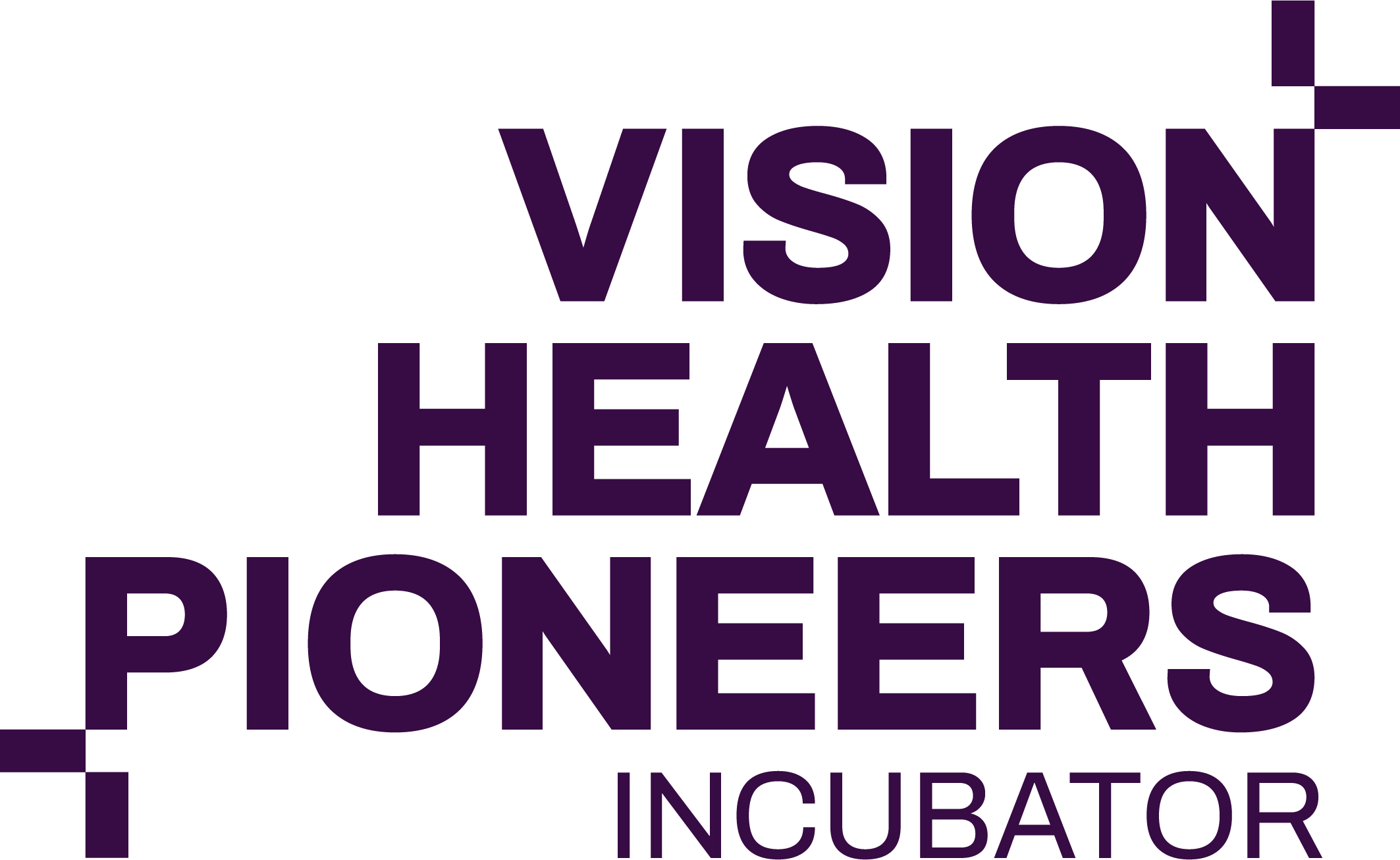
09 Feb Closing the Gender Health Gap: The Femote Story
For too long, women’s health has been overlooked. Jil, co-founder of femote, turned a personal experience into a mission to close the gender health gap. From discovering the deep-rooted issues in gynecological care to building a data-driven solution, her journey is one of passion, resilience, and strategic innovation. In this interview, she shares how she found the right co-founders, navigated the challenges of launching a women’s health startup, and how the Vision Health Pioneers Incubator has shaped femote’s path forward.
In my early twenties, I had an experience with the HPV virus that impacted how I saw women’s health. It made me realize how little women often know about their own bodies and just how many gaps exist in the healthcare system when it comes to addressing their needs. That experience planted a seed in me, but it wasn’t until years later that it grew into something much bigger.
I’ve been interested in starting my own company for years, but I never found a business idea or product that I was truly passionate about—until I learned about the gender health gap and the gender health data gap. Once I started digging into these issues, I was completely fascinated and, honestly, I couldn’t stop thinking about the problem. It felt like the problem found me, and from there, creating a startup around it was almost inevitable.
When I met my co-founder Frederike, everything clicked. We realized that one of the core issues was a lack of data. Instead of waiting for the healthcare system to catch up, we wanted to empower women directly—to break taboos, find support, and ultimately drive better research and outcomes. That’s the dream we’re building with femote.
First and foremost, this isn’t just a personal project—it’s a business. This is a startup driven by strategy and data. We’ve analyzed where we can make the biggest impact, and we’ve chosen to focus on intimate infections because they’re one of the leading reasons for emergency gynecological appointments in Germany. We see the greatest potential here.
That said, the idea did stem from a personal experience. My co-founder Frederike has had her fair share of challenges with intimate infections, especially struggling to get timely appointments. During COVID, she was inspired by the rapid at-home tests for COVID-19 and realized how empowering it would be to have something similar for intimate infections—a quick, reliable way to understand your infection status without waiting endlessly for a doctor’s appointment.
When it comes to our team, we have everything we need in-house. Among many other things, Frederike brings her technical expertise to the table, Nina contributes her medical knowledge as a doctor, and I handle the business side, focusing on sales and communication. Together, we’re perfectly positioned to tackle this problem from every angle and make femote a success.
To be honest, the first reason I looked for a program was practical—I needed to ensure I had a salary while building femote, so having nine months of financial support through the stipend was essential. But when it came to choosing Vision Health Pioneers specifically, it was a no-brainer. They’re focused entirely on healthcare solutions and have an incredible network of specialists.
We wouldn’t be where we are today without this program. We’ve had countless mentorship sessions with experts—lawyers, product managers, financial advisors, pharma experts, and more—that have helped us define our product, navigate legal requirements, and refine every aspect of our solution. The level of support has been phenomenal, and it’s given us the tools and confidence we need to turn femote into a reality.
There are multiple layers of challenges to manage. In healthcare in general, the biggest hurdle is navigating the complex regulatory and legal requirements. Everything needs to be absolutely solid—there’s no room for error. At the same time, you’re trying to figure out product-market fit, willingness to pay, and other fundamentals, all while managing the need for studies and certifications.
In women’s healthcare specifically, a major challenge is the lack of data. When you speak to investors, pharma companies, or insurers, they want solid facts and figures, but so much of this data just isn’t available. We’re missing key insights, like how many women are affected by specific conditions, which makes it harder to drive change and secure support.
Another challenge is the funding gap. As an all-female founding team, we know that statistically, it’s harder for women to raise funding compared to male-led teams. The research backs this up, and while we’re only just starting our first funding round, we know this could be a hurdle to overcome.
Vision Health Pioneers has been instrumental in helping us address these challenges. Their network is full of experts who understand these exact issues, and they’ve provided us with the knowledge and mentorship we need to navigate them. Yes, it’s difficult, but it’s not impossible. The more knowledge and support you have, the more likely you are to succeed, and having access to such an incredible network makes all the difference.
One of the biggest achievements during the program has been navigating the MDR certification landscape in Germany. Understanding how our product needs to be structured so that we can initially offer a service without requiring MDR certification—while also mapping out the steps we need to take once we’re ready for that process—has been a game-changer. This clarity has allowed us to move forward strategically without unnecessary roadblocks.
Beyond that, the incubator has helped us refine our product approach, deepen our understanding of user needs, and connect with key experts who have been instrumental in shaping our next steps. It’s given us a clear roadmap, and that’s been invaluable in moving femote closer to reality.
Because we’re working to close the gender health data gap, handling sensitive data is at the core of what we do. Naturally, this led to a lot of discussions around the feasibility of conducting research using everyday health data and how to build a robust, secure product that allows us to do so responsibly. Navigating that landscape in a hyper-secure, professional way was a key focus during the program, and it was invaluable to have expert input on best practices and compliance.Another big topic was our business model. It’s one thing to build an impactful solution, but it also has to be financially sustainable. We had many conversations—both big and small—about how to structure femote in a way that ensures long-term success.
I’ve been part of the Miss Germany process for over half a year now, and I never expected to make it to the final. But the journey has taught me so much—especially about public speaking, selling our vision, and representing who we are. It’s also given me an incredible network of inspiring, passionate people who I know will be friends and allies in one way or another.
What’s really fascinating is that, at its core, Miss Germany’s transformation mirrors what we’re doing with femote. They’re no longer a beauty pageant—they’ve reinvented themselves as an impact award. Max, the CEO, had to navigate the long legacy of traditional pageants, something his father and grandfather built, and modernize it to fit today’s world. That’s exactly what we’re doing in women’s healthcare. The system, as it stands, is outdated and simply not working for women. We’re stepping in to challenge it, rethink it, and build something better—just like Miss Germany has done in their space.
At the end of the day, we both want the same thing: to see women as fully equal human beings who deserve the same opportunities, respect, and quality of care as men.
Our next big milestone is launching the first version of our product, which we’re aiming for in Q3 this year, likely around August 2025. This will be a huge step toward making gynecological care more accessible and data-driven. After that, our focus will shift to developing the algorithms and data intelligence in the background. We want to build a strong dataset that will not only help women manage their health today but also advance research tomorrow. Once we reach that stage, we’ll conduct medical studies and enter the MDR certification process so we can launch a second, more advanced version of our product offering.
Femote’s journey is just beginning, but Jil and her team are already making waves in women’s healthcare. With a clear vision, strategic approach, and the support of Vision Health Pioneers Incubator, they are turning an overlooked issue into a tangible solution. As they move toward launching their first product, their mission remains strong: to empower women with knowledge, improve gynecological care, and drive real change in the healthcare system. Keep an eye on femote—this is only the start.
Follow Jil‘s journey here: https://www.femote.eu/



